
Carolyn Gramling
Earth & Climate Writer, Science News
Carolyn is the Earth & Climate writer at Science News. Previously she worked at Science magazine for six years, both as a reporter covering paleontology and polar science and as the editor of the news in brief section. Before that she was a reporter and editor at EARTH magazine. She has bachelor’s degrees in Geology and European History and a Ph.D. in marine geochemistry from MIT and the Woods Hole Oceanographic Institution. She’s also a former Science News intern.

All Stories by Carolyn Gramling
-
 Climate
ClimateNew UN climate report finds no time for denial or delay
It links extreme weather around the globe to Earth’s changing climate.
-
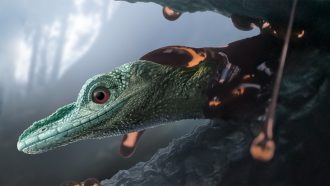 Fossils
FossilsAncient creature revealed as lizard, not a teeny dinosaur
CT scans of 99-million-year-old fossils of hummingbird-sized specimens trapped in amber reveal a number of lizardlike features.
-
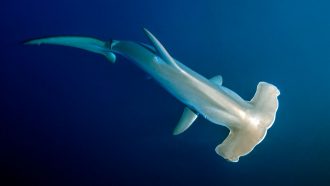 Fossils
FossilsSudden shark die-off 19 million years ago eliminated most species
New fossil evidence shows 90 percent of sharks died in the mysterious event.
-
 Climate
ClimateU.S. records reveal the last 30 years were the hottest on record
New ‘climate normals’ show that average temperatures increased notably just since 1990.
-
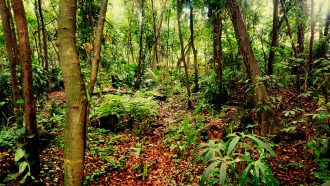 Plants
PlantsDinosaur-killing asteroid radically changed Earth’s tropical forests
The asteroid collision initially reduced the diversity in what had been sunny tropical rainforests. In time, the forests would become permanently darker.
-
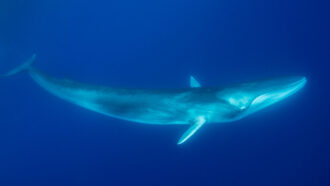 Earth
EarthFin whales could help scientists map what lies below the seafloor
Fin-whale calls are loud enough to penetrate into Earth’s crust, offering scientists a new way to study the properties of the ocean floor.
-
 Animals
AnimalsAttack of the inner-cannibal mega-shark
The outsized megalodon was a fierce terror that chewed its way across the oceans. It learned to kill even before it was born.
-
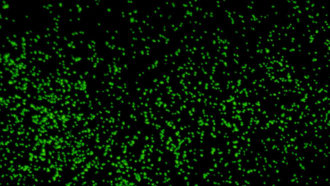 Microbes
MicrobesSome deep-seafloor microbes still alive after 100 million years!
Some starving microbes nap while awaiting their next meal. For some living miles below the ocean surface, that nap may exceed 100 million years.
-
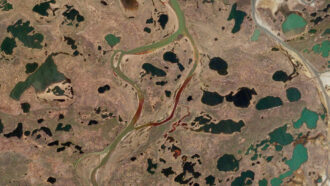 Climate
ClimateSiberian heat wave that caused an oil spill made more likely by climate change
The six-month heat wave in Siberia during the first half of 2020 would not have happened without human-caused climate change, researchers find.
-
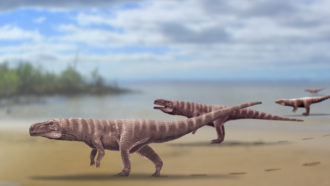 Fossils
FossilsThese crocodile ancestors lived a two-legged life
A set of 106-million year old footprints show a crocodile relative appears to have walked on two legs.
-
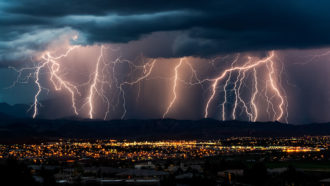 Earth
EarthLightning megaflashes set big new distance and duration records
Scans of satellite images identified two lightning bolts with previously unheard-of dimensions. Both flashed through the skies over South America.
-
 Environment
EnvironmentFossil fuels appear to release far more methane than we thought
Ice cores reveal less methane than expected. This suggests today’s fossil fuel industry is responsible for nearly all of the methane emissions from natural sources today.